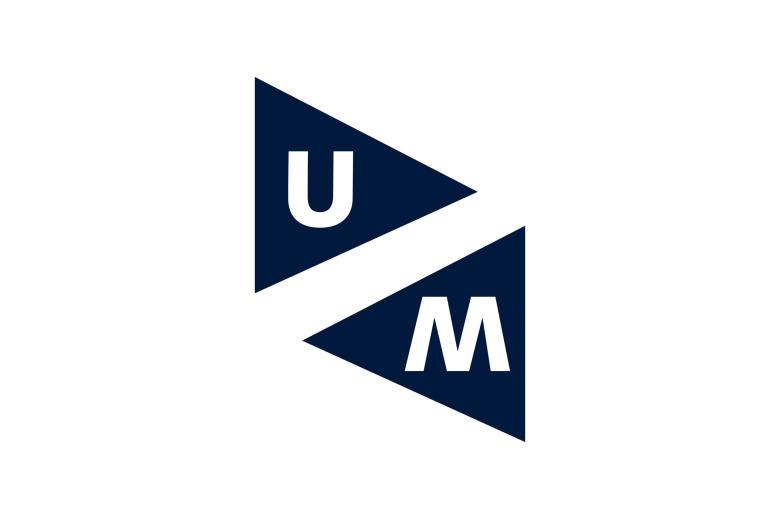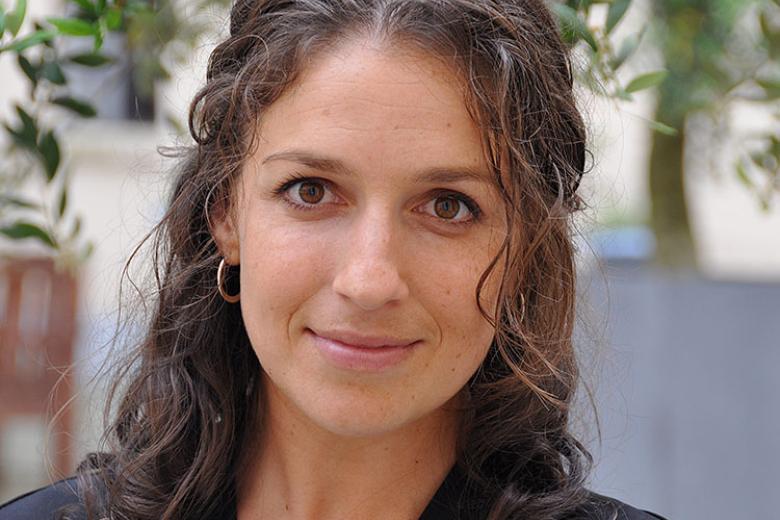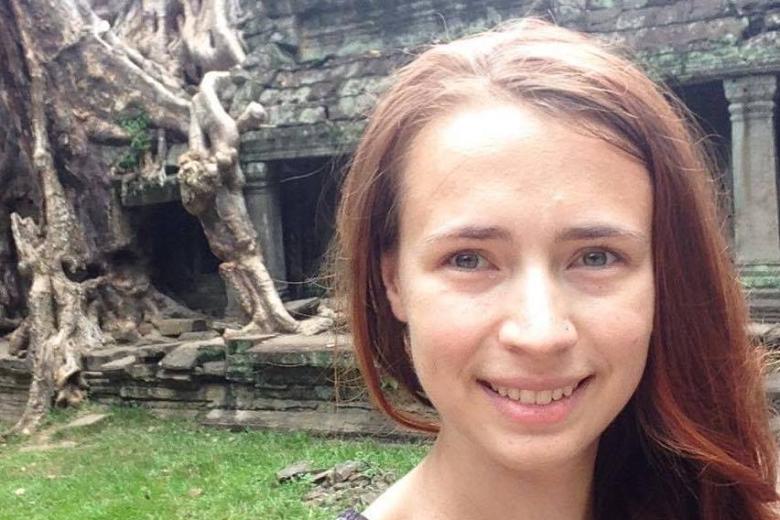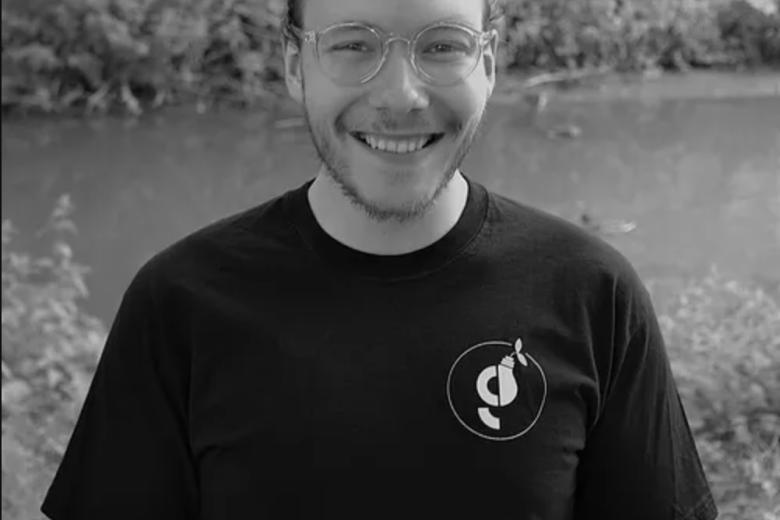Sustainability is not a cheesy matter
“Self-righteous, pale, scrawny, joyless” – that is an excerpt from my online dating profile, but it also sums up the general perception of vegans. That’s a shame because, as Paul Smeets has illustrated at the Opening of the Academic Year, even an occasional hand in the cookie jar of veganism can have a great impact.
So why bother? While a plant-based diet might help combat obesity and heart disease – vegetables tend to be fat-free, low in calories but very nutritious – any claims about individual health outcomes must be taken with a pinch of (pink Himalayan) salt. There is also the moral side of battery farming and dairy production: the matter of animal rights. The most pressing aspect though is the ecological impact: CO2 emissions and water usage.
Ethicookies
Associate Professor of Social Finance Paul Smeets used a quiz during the Opening of the Academic Year to draw attention to the matter. Replacing regular cookies with vegan ones (no eggs, butter or milk) at the reception saved as much CO2 as a return car journey between Maastricht and Paris. “You need 15,000 litres of water to produce one kilo of beef.” Even avocados – a topping of choice for many a vegan or hipster – only need 2,000 litres per kilo and they’re by far the most water-intensive option, with the average vegetable around 300 l/kg.
Smeets not only proved that people are partial to free cookies but also that individuals’ actions can have an impact on global problems. The small print of consumerism reveals to anyone willing to squint that there’s a cost beyond a product’s price. Ninety percent of Amazon deforestation is due to cattle ranching. Still, why is vegetarian not enough then? The cows that produce the milk still consume a lot of water (and rudely emit greenhouse gases). “It takes around 5,000 litres of water to produce a kilo of cheese – it’s not only the milk production, which in itself is problematic, but also the process of making cheese.”
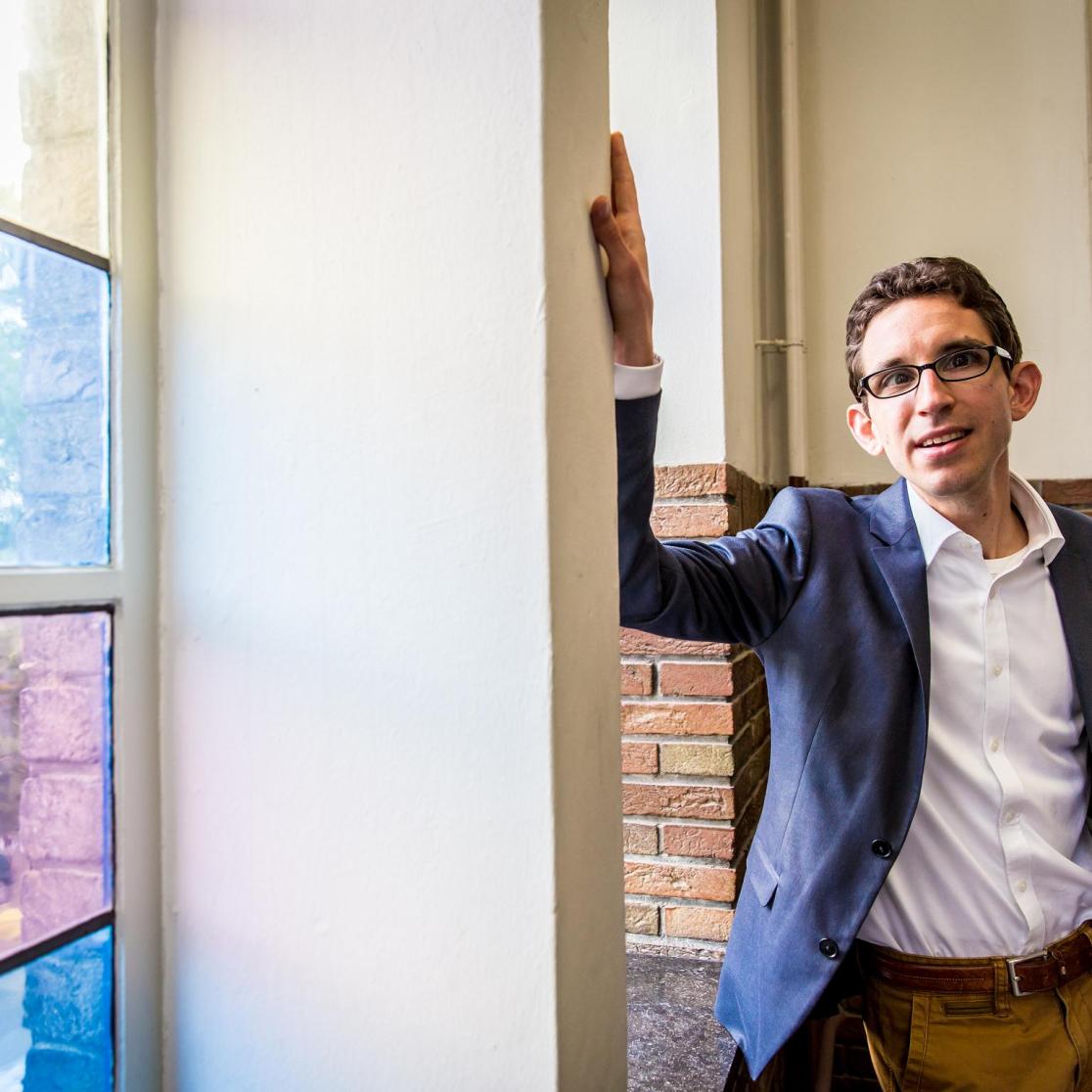
Paul Smeets has launched the Vegan Lunch Challenge.
Sandwiches in bathtubs
Speaking of cheese: “A vegan alternative for an average lunch of ham and cheese sandwiches for around 20 people would save 80 bathtubs of water and enough CO2 to have a hairdryer run continuously for 365 days.” Martin Paul, in his address during the Opening of the Academic Year, restated UM’s aim to have a zero carbon footprint by 2030, as part of our commitment to the Sustainable Development Goals. Smeets took up that baton and ran with it, launching his Sustainable Lunch Challenge: “I wanted to encourage people to just give it a try: have a vegan lunch to see if you like it and let me know. I will keep track and give regular updates on how many bathtubs of water and hours of running hairdryers we have saved.”
Not deterred by the negative connotations of hairdryers in bathtubs, the Executive Board has already taken up Smeets’ challenge, as have many others: “The response has been great so far – I hope many more people will give it a go and get in touch.” Smeets describes himself as ¾ vegan and is not out to proselytise. “People tend to see it too black and white – either vegan or not – but there is a lot of grey in between. That’s where the greatest potential for gains lies: a lunch, breakfast, even a couple of full days per week – it all makes a difference if enough people do it.”
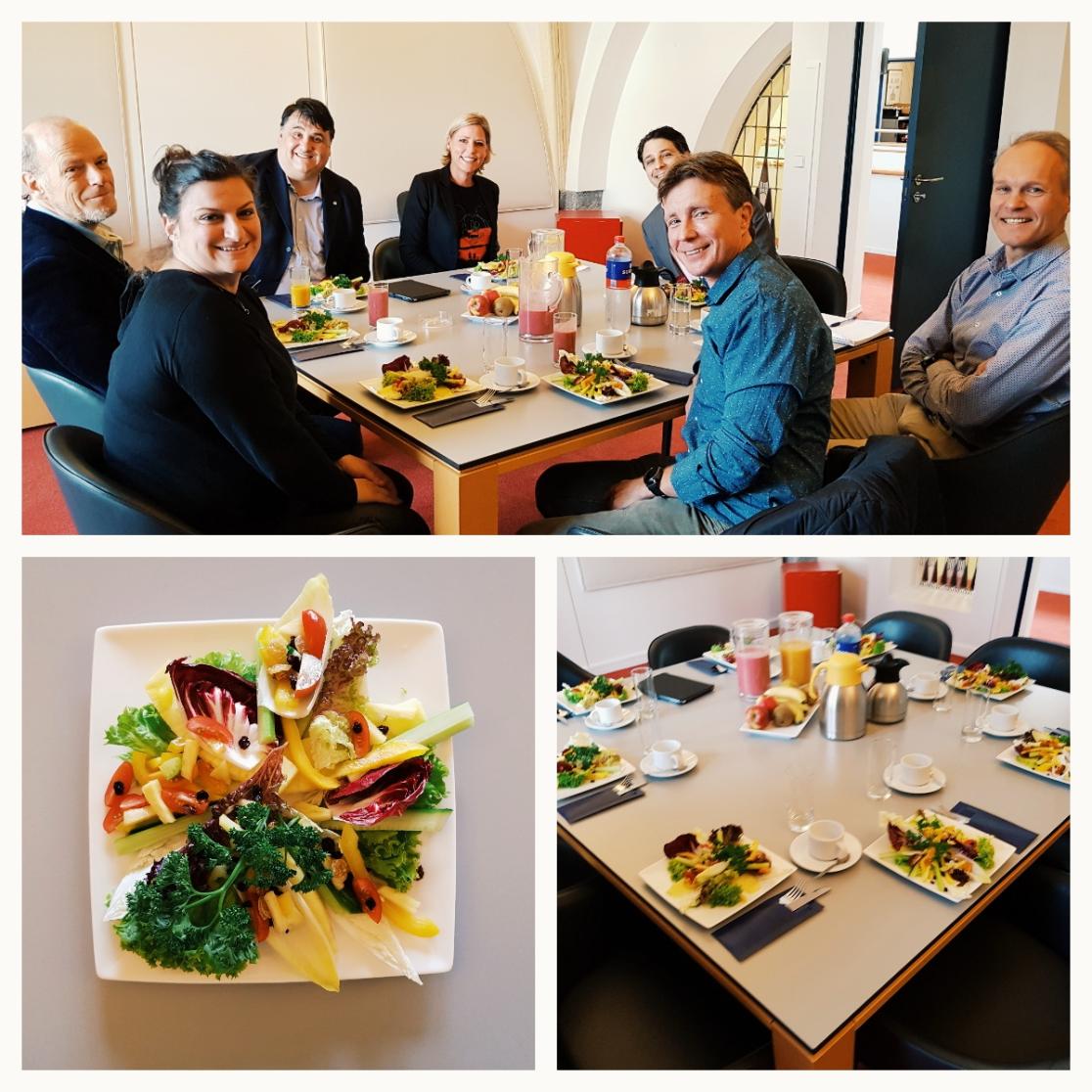
UM's Executive Board is rising to the challenge - over lunch.
Green shoots – no longer a matter of taste
Veganism used to be a rather forbidding affair: the selection of available foods was limited and the minority of vegans using their morals as a yardstick with which to beat others certainly didn’t help. But nowadays, vegan alternatives are readily available, their quality vastly improved. The vegan option on the menu is no longer to go home and stay there. Most restaurants in Maastricht offer vegan dishes. Also, more and more people follow a purely plant-based diet without feeling the need to use that laudable ethical decision as a conversation starter.
For some, veganism may still conjure unnerving images of highly processed soy pressed into sparerib shape, but it’s essentially eating an apple, ratatouille, falafel, salad or, if you must, French fries. So give it a go: lunch your way towards sustainability – and tell Paul Smeets about it.
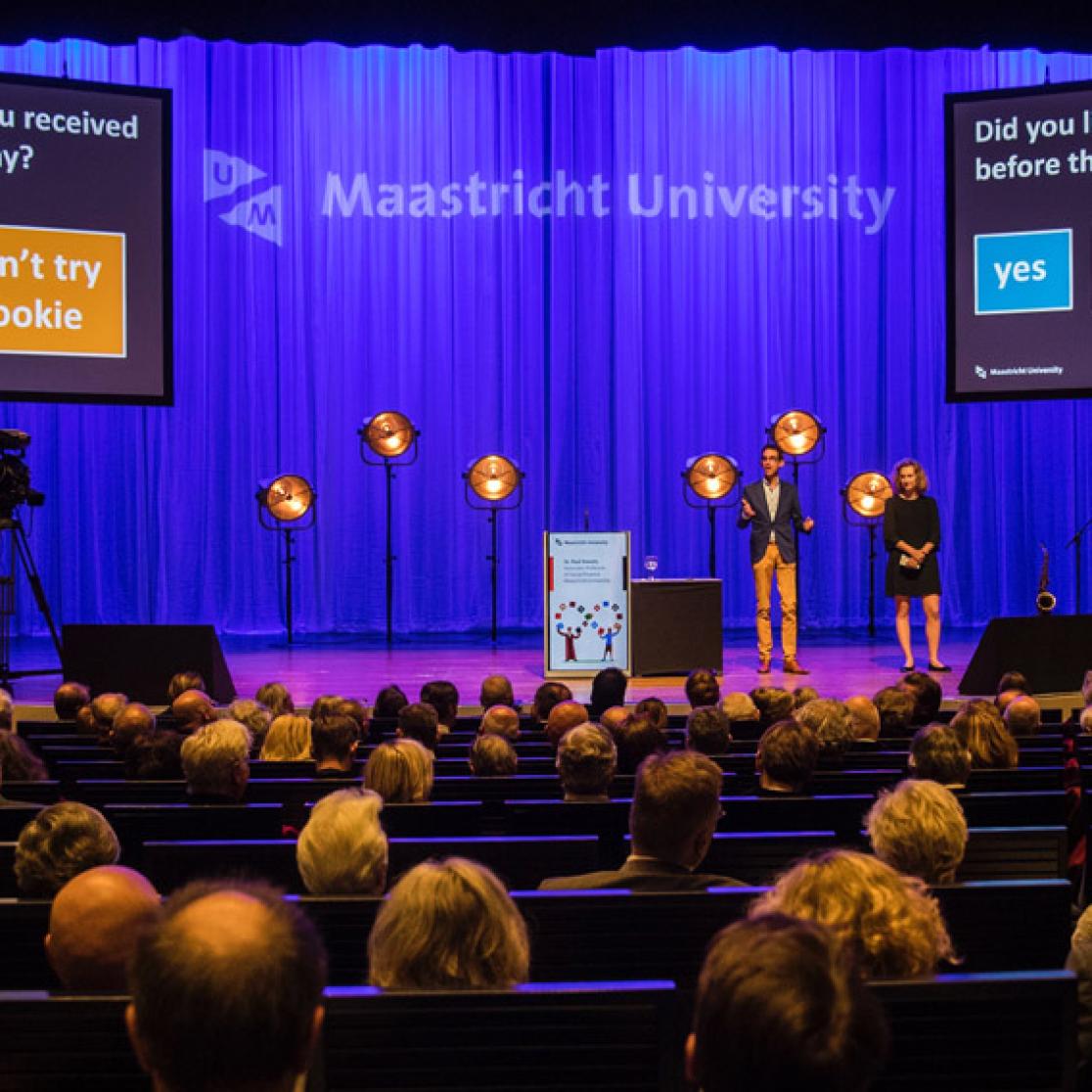
The 2018 OAY was all about sustainability.
UM Vegans
Also read
-
In Kerkrade, you can listen to the invisible universe
UM and Discovery Museum in Kerkrade make the Einstein Telescope understandable for everyone.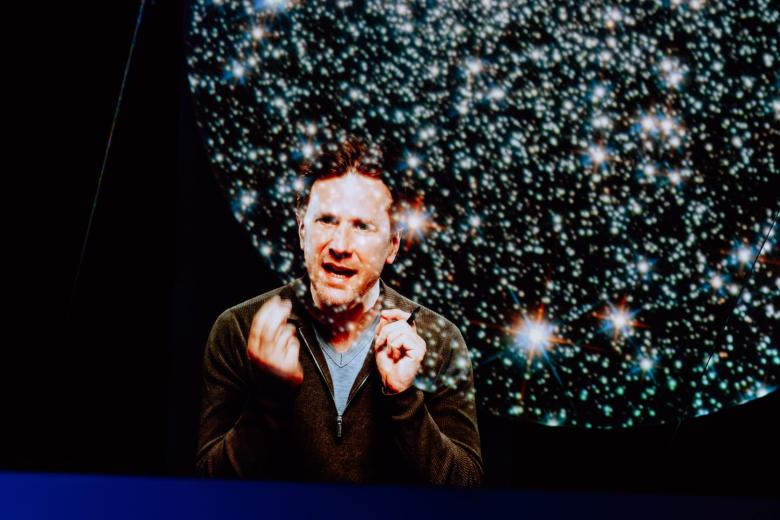
-
Maastricht University ranked #3 worldwide and #1 in Europe in 2025 Better World MBA Ranking
We are incredibly proud to share that the MBA programmes of Maastricht University School of Business and Economics’ executive branches, MSM and UMIO, have once again been recognised among the very best sustainable business MBA programmes worldwide. In the 2025 Better World MBA Ranking by Corporate...
-
